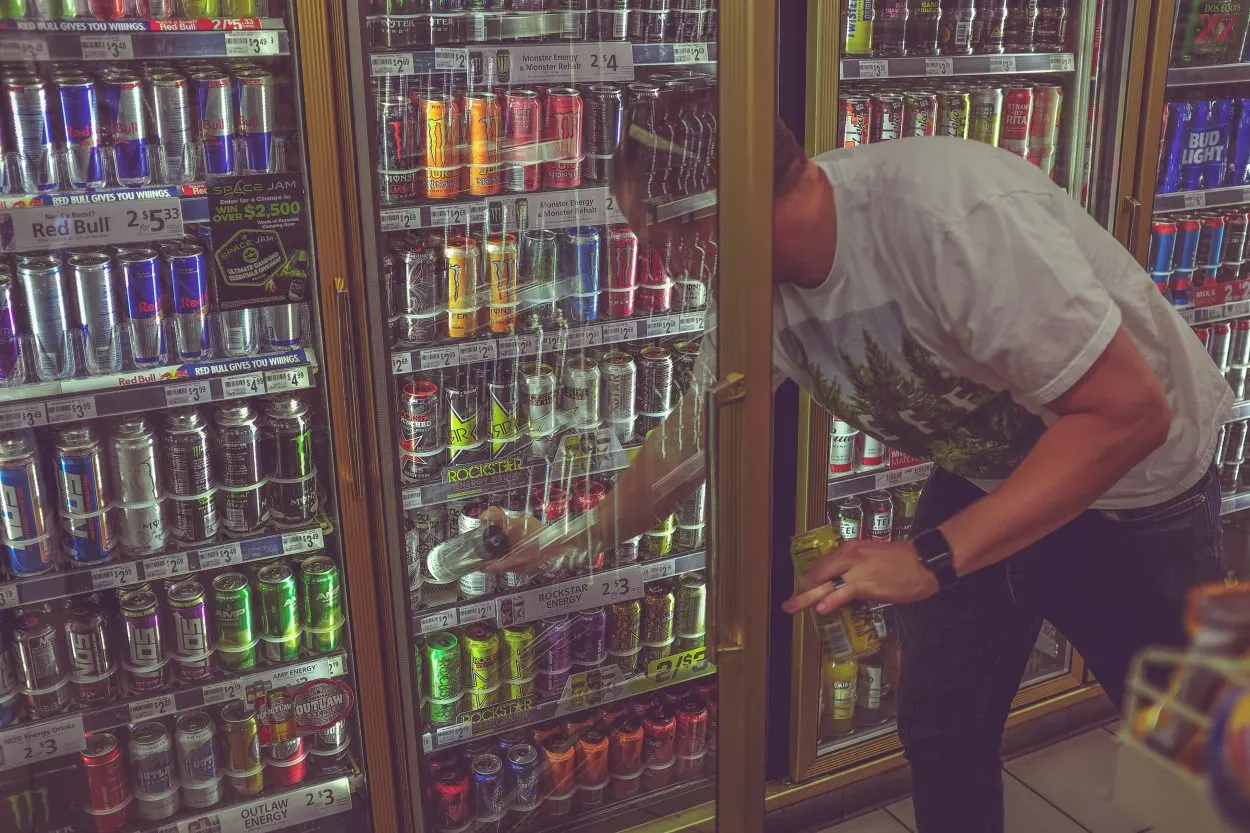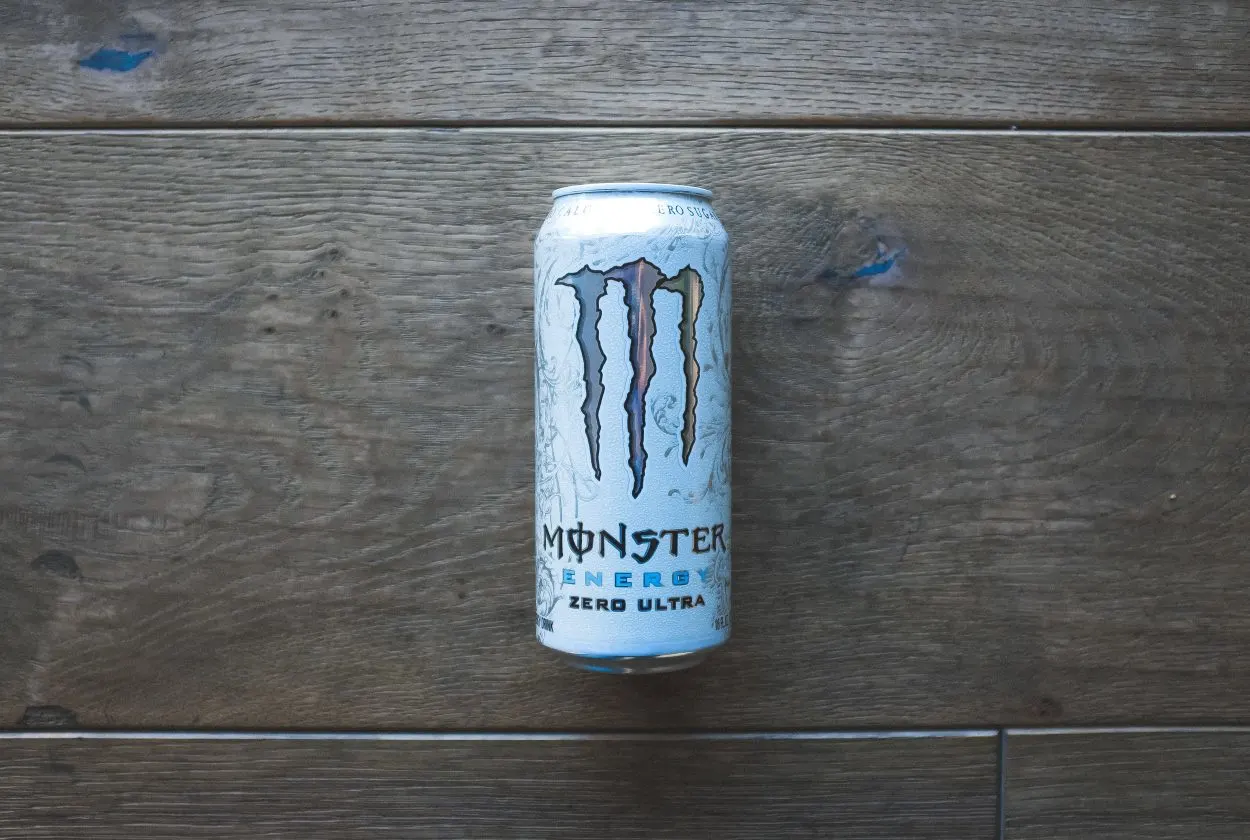
Energy drinks are the most consumed out of all the beverages. Why? because they contain ingredients that help people to get through the day by staying productive and energetic.
Energy drinks have been a part of many studies and almost every one of them resulted in mostly negative side effects.
Energy drinks are quite popular among teens, adults, and athletes.
People get addicted to energy drinks without even realizing it, an addiction is a psychological condition. Honestly, the word “condition” scares the bejesus out of me, but most energy drink consumers take it lightly.
Addiction is an ongoing desire to use a substance or engage in a behavior, despite the fact that it can lead to negative ramifications.
Although the addiction to energy drinks may not seem harmful as compared to drug addiction, there’re some behavioral similarities.
Energy drinks contain potential habit-forming substances, like caffeine and sugar which makes them extremely addictive.
In this article, we’ll learn about how you can get addicted to energy drinks and how they may affect you. So let’s jump in.
Contents
How Long Does It Take To Get Addicted To Caffeine?

An addiction to energy drinks is associated with addictive symptoms that are related to the brain and nervous system which include:
- strong cravings.
- a mental image of drinking energy drinks.
- the inability to control your energy drink consumption.
However, caffeine is categorized as a dependence rather than an addiction. Because for a drug to be considered addictive, it should be able to activate the brain’s reward circuit.
Caffeine only increases the dopamine signaling in your brain, because caffeine alone isn’t enough to activate the reward circuit.
Caffeine dependence forms when caffeine antagonizes the adenosine A2A receptor. It blocks adenosine from the adenosine receptor site which delays drowsiness and releases dopamine.
Caffeine tolerance develops quickly, complete tolerance of caffeine is said to be after consumption of at least 300 mg taken 3 times a day for 18 days in a row.
How Do People Get Addicted To Energy Drinks?
An addiction to energy drinks can happen both ways, gradually or quickly.
There’re many factors that have a role in determining how an addiction forms, including your personal as well as your family history, and your brain chemistry.
The problem with energy drinks, especially the ones that are high in caffeine and sugar, is that they lead to a higher amount of dopamine release.
Dopamine is the feel good-hormone, so the more you consume energy drinks, the less pleasure you will get from the dopamine response. This will lead to you increasing your energy drink consumption in order to experience the dopamine response.
Moreover, energy drinks can be addictive from a psychological perspective as well. Often people feel that they’re unable to function without their daily consumption of energy drinks, which leads to dependence.
What Will Happen If I Drink Energy Drinks Every Day?

Everyday consumption of energy drinks won’t affect you as long as you keep it in moderation.
However, there’re some possible side effects of everyday consumption of energy drinks, especially the ones with higher quantities of caffeine and sugar.
Here’s a list of some of the side effects that may be caused by energy drinks:
- increase in blood pressure and heart rate.
- increase in the risk of type 2 diabetes.
- damage your teeth.
- negative effect on kidney health.
May Increase Blood Pressure And Heart Rate
Blood pressure and heart rate are the most important measures for heart health, and increased levels have been linked with a greater risk of increased blood pressure and heart disease.
Many studies suggest that healthy adults with regular consumption of a 12-ounce can of Red Bull experience increased blood pressure as well as heart rate levels within 90 minutes after consuming it.
Furthermore, these increases in blood pressure and heart rate are thought to be caused by the caffeine content of energy drinks.
Additionally, while the research may be limited, drinking Red Bull or any caffeinated energy drink could worsen the heart health of people who suffer from pre-existing heart disease or increased levels of blood pressure.
May Increase The Risk Of Type 2 Diabetes
Excessive sugar consumption has been associated with an increased risk of type 2 diabetes.
In fact, in a review, it was found that adults who consumed 1-2 servings of sugar-sweetened beverages daily had a 26% increased risk of type two diabetes.
As many energy drinks are sugar-sweetened and often contain 26 to 30 g of sugar per 8.4-ounce I would recommend you limit your consumption of energy drinks.
May Damage Your Teeth
Research says that consuming acidic beverages may have an effect on tooth enamel, which is a thick and hard outer coating that helps prevent tooth decay
Thus, a regular intake of acidic beverages like Red Bull can harm your tooth enamel which will result in tooth decay.
May Negatively Affect Kidney Health
More specifically, research suggests an association between high sugar consumption and a greater risk of chronic kidney disease. And as almost all energy drinks contain a higher content of sugar, they can be quite dangerous for your health.
What Happens When You Quit Drinking Energy Drinks?

People who consume a minimum of 100 mg of caffeine daily can be a target of caffeine dependence that may trigger withdrawal symptoms which include:
- headaches
- stiffness
- lethargy
- nausea
- muscle pain
- vomiting
- depression
- irritability.
Professor Roland R. Griffiths, who’s a professor did research that suggests that withdrawal affects about 50% of regular coffee consumers, which begins within 12–24 hours after cessation of caffeine consumption and peaking in 20–48 hours, which often lasts for good 9 days.
Here’s a video in which you can see how people get addicted to energy drinks, and how they break them.
Alternatives To Energy Drinks
Energy drinks may be the cause of many of your health conditions, therefore I would suggest you switch your energy drinks to health drinks like teas gradually, being careful of them too.
If you have developed a dependence on caffeine or should I say addiction, nonetheless the easiest way to fight both is to make some changes like you can replace your energy drink with something healthier.
Here’re some alternatives that you can try:
- Decaf Coffee
- Fruit-flavored water
- Sparkling water
- Green teas
- Herbal or fruit teas
- Kombucha
Conclusion
- Yes, you can with time develop an addiction to energy drinks.
- Researchers prefer the term dependence rather than addiction.
- There’re several side effects that regular intake of energy drinks can cause like heart diseases.
- People who abruptly stop consuming the usual amount of energy drinks/caffeine often experience caffeine withdrawal symptoms which include, lethargy and irritability.
- If you want to fight that addiction, you would want to switch your daily intake of caffeine/energy drinks to something healthier like green teas or herbal teas.
